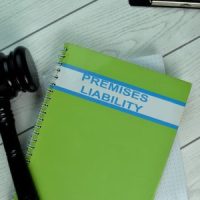Three Classes Of Visitor Under Florida Premises Liability

Florida’s premises liability law sets out general obligations for landowners (or, in some cases, business owners) toward the people who come onto their property. All visitors are owed a certain baseline, minimal degree of care – but state law establishes three separate classes of visitor, each of which are owed a different standard of care in terms of protecting them from danger. If you have been injured on another person’s premises, understanding which category you fall under can make a huge difference in terms of whether or not you are entitled to compensation.
Invitees & Licensees
The three categories were delineated in a 1972 case called Post v Lunney, where a woman on a tour of homes with the Palm Beach Garden Club tripped on a rug protector and broke her leg. Before the case could be decided, the court had to establish what type of visitor Ms. Lunney actually was, and what duty of care Mrs. Post was required to uphold. Mrs. Lunney’s counsel argued that she was an invitee, and thus entitled to the highest duty of care under Florida law. For an invitee, a landowner must make their property reasonably safe, and to warn them of dangers that they know of (or should know of). Examples may include posting warning signs or giving a verbal warning to visitors.
Mrs. Post’s counsel, conversely, argued that Mrs. Lunney was a licensee, which requires a lower degree of care. Licensees are not owed a personal warning about dangers that could not be fixed; rather, the landowner simply has to refrain from exposing them to danger or intentionally injuring them. In the end, the court sided with Mrs. Lunney, awarding her damages and holding that she had been an invitee, which meant that Mrs. Post was liable as she had failed to make her home ‘reasonably safe.’
Adult & Child Trespassers
The third category is that of trespassers. Adult trespassers onto another person’s land are only owed a duty to refrain from intentional injury by the landowner – after all, they are not supposed to be present, and may face civil or criminal penalties for being there. No landowner has the right to simply attack a trespasser unless they sincerely believe that their life is in immediate danger (Florida’s “stand your ground” law may apply, depending on the situation), but they also are not required to warn the trespasser of other dangers.
While adult trespassers are only owed the bare minimum in terms of the landowner’s duty to warn, there is a special duty owed to child trespassers. Minor children are presumed to not properly understand the dangers inherent in certain “attractive nuisances,” so landowners are obligated to take ‘reasonable steps’ to make it safe (if at all possible), and to take extra precautions with buildings or other attractions that might attract children, even though they have no right to be on the land itself.
Contact A Tampa Premises Liability Attorney
If you have been injured on someone else’s property, and you suspect that there was negligence involved, you may be able to bring a claim against them under a theory of premises liability – but only if you know what category you fall into, and what duty that creates. A Tampa premises liability attorney from the Rinaldo Law Group can help you understand your options after an accident, and try to give you the best possible chance to recover for what you have been through. Call our office today for a free consultation.
Source:
flsenate.gov/Laws/Statutes/2018/776.012












